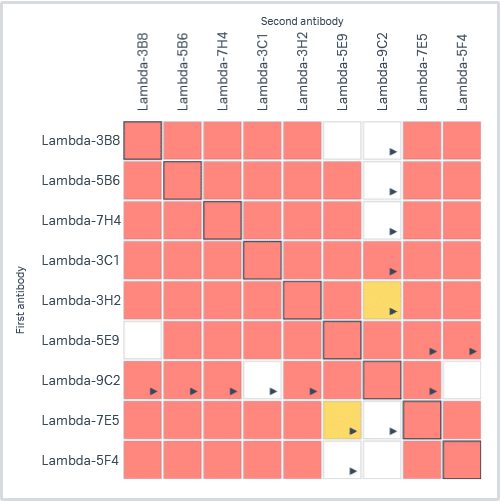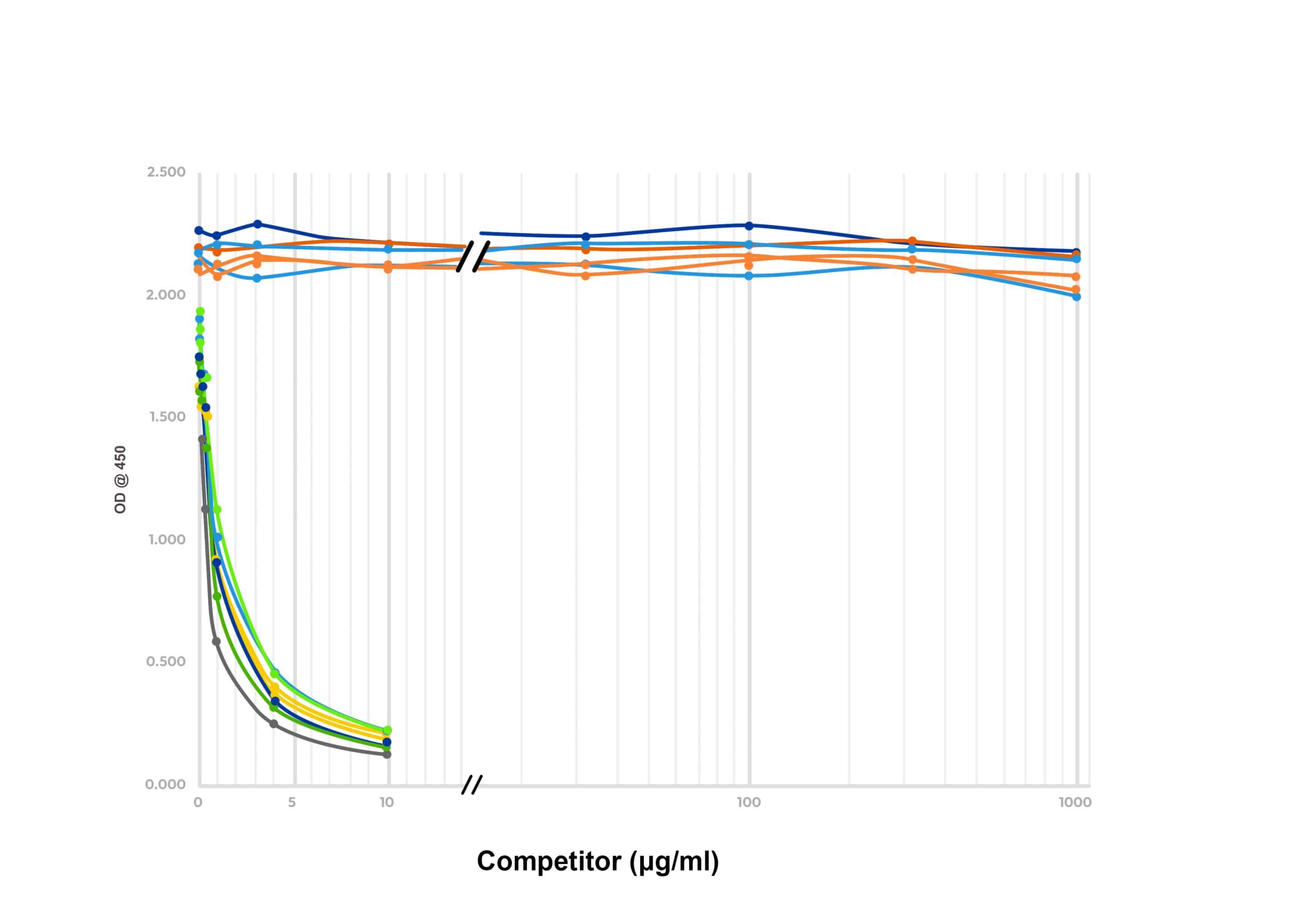Lambda Free Light Chain (FLC) Rabbit Monoclonal Antibody, 7E5
$250.00 – $450.00
| Product Name | Lambda Free Light Chain (FLC) Rabbit Monoclonal Antibody, 7E5 |
| Catalog Number | EX-7E5FLC-LEX-7E5FLC-L |
| Immunogen | Purified Human Free Light Chain (FLC) - Lambda |
| Host | Rabbit |
| Preparation | Recombinant monoclonal antibody expressed in HEK293F cells and purified by protein A affinity chromatography. |
| Isotype | rabbit IgG, kappa |
| Conjugation | Unconjugated |
| Clonality | Monoclonal |
| Concentration | 1mg/ml |
| Purification | Protein A affinity chromatography |
| Storage buffer | PBS |
| Storage conditions | For long term storage, the antibody should be stored at -20℃ and is stable for 12 months from the date of receipt. Avoid repeated freeze-thaw cycles. For short term storage, keep at 4oC for a week should be fine. |
| Application Dilution | 1:1,000-1:100,000 (platform dependent, customers must test the optimal concentration on their own platform) |
Additional information
| Size | 100µg, 1mg |
|---|
Background information
Free light chains (FLCs) are small protein components produced by plasma cells, which are a type of white blood cell involved in the immune system. Normally, these light chains are part of antibodies (immunoglobulins), but they can also circulate freely in the blood when not bound to heavy chains. FLCs are classified into two types: kappa and lambda, based on their structure.
In healthy individuals, FLCs are present in the blood at low levels, but certain diseases, particularly those involving abnormal plasma cell proliferation such as multiple myeloma, AL amyloidosis, and other B-cell disorders, can lead to elevated levels of FLCs. The balance between kappa and lambda FLCs can also be disrupted in these conditions, providing valuable diagnostic information.
Measurement of FLCs in the blood is an important diagnostic tool in hematology and oncology. It helps in the detection, diagnosis, and monitoring of plasma cell disorders. Monoclonal antibodies that specifically target kappa and lambda free light chains are commonly used in immunoassays to measure FLC concentrations accurately. These assays are critical for early diagnosis, treatment planning, and monitoring disease progression or remission.
Datasheet
| Datasheet | Download |
Validation data
| Validation data | Download |


Reviews
There are no reviews yet.